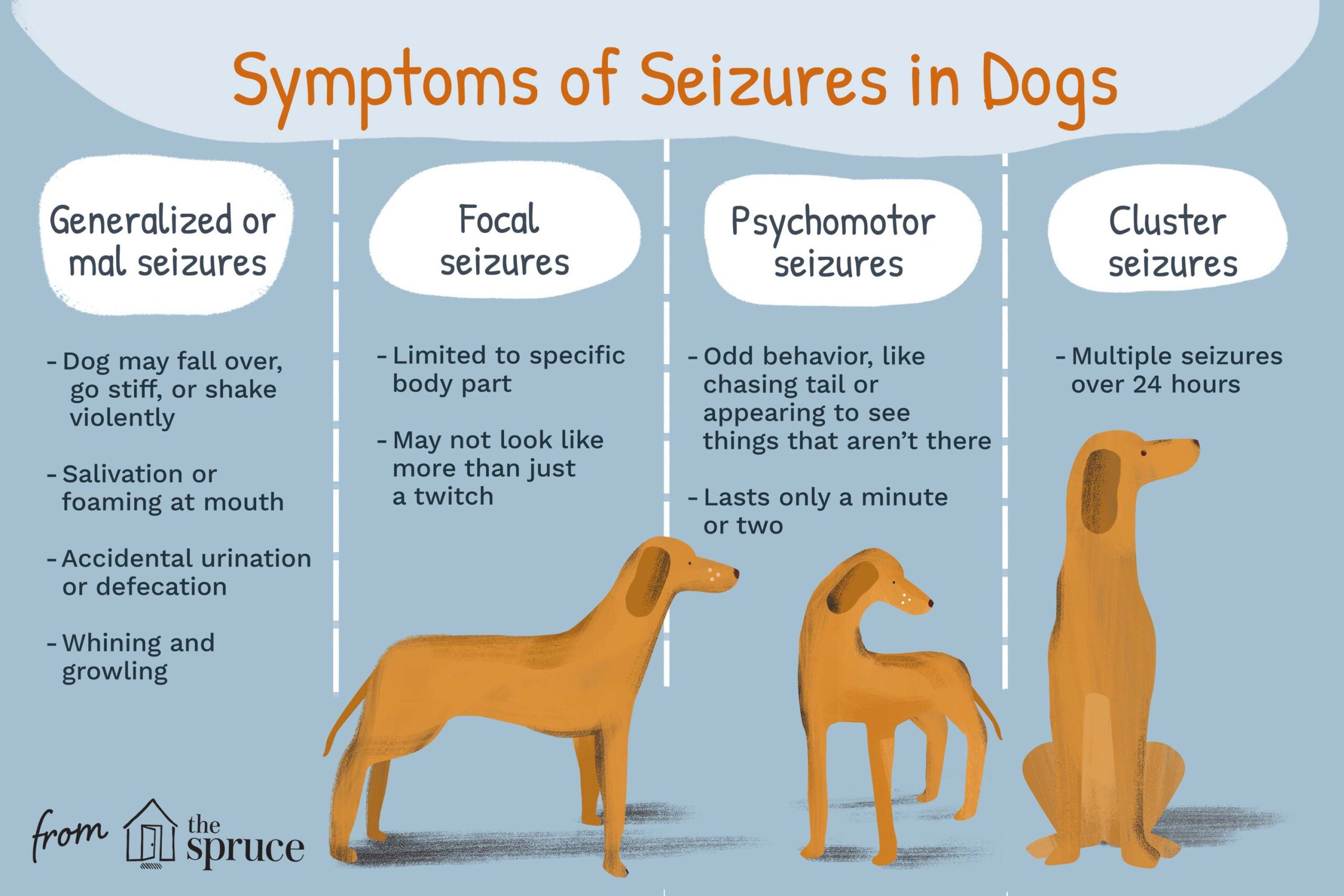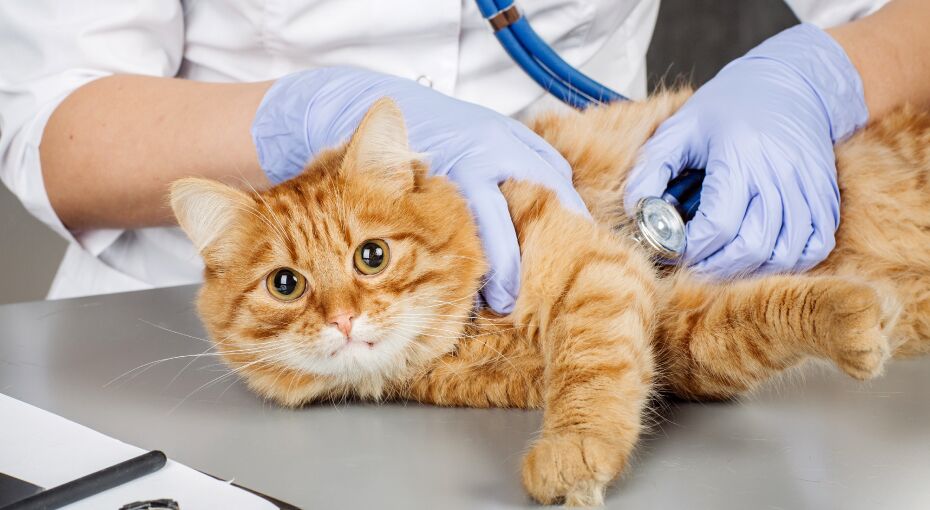Seizures in puppies can be a concerning and distressing experience for both pet owners and the young animals themselves. Understanding the causes, symptoms, and potential treatments for these seizures is crucial in providing proper care and support to ensure their well-being.
Key Takeaways:
- Seizures in puppies can be caused by a variety of factors, including genetic predisposition, infections, toxins, and metabolic disorders.
- It is important to differentiate between seizures and other conditions that may mimic seizure-like behavior in puppies, such as fainting or tremors.
- Puppies experiencing seizures should be evaluated by a veterinarian to determine the underlying cause and develop an appropriate treatment plan.
- During a seizure episode, it is crucial to ensure the puppy's safety by removing any nearby objects that could cause harm and avoiding physical restraint.
- Medications prescribed by a veterinarian can help manage seizures in puppies, but they may need to be adjusted over time based on the puppy's response and any potential side effects. Regular follow-up appointments are necessary for monitoring progress and making necessary adjustments.
Understanding Seizures in Puppies: What You Need to Know
What are seizures?
Seizures are a sudden and temporary disturbance in the electrical activity of the brain. They can cause abnormal behavior, muscle spasms, and loss of consciousness. Seizures can affect dogs of all ages, including puppies. As a pet owner, it's important to understand what seizures are and how they can impact your furry friend.
Why do puppies have seizures?
There are several potential causes for seizures in puppies. One common cause is epilepsy, which is a neurological disorder that can be inherited. Other possible causes include infections, head injuries, exposure to toxins, or underlying health conditions. It's essential to identify the underlying cause of your puppy's seizures so that appropriate treatment can be provided.
How Seizures Affect Puppies' Bodies: Important Information for Pet Owners
What happens during a seizure?
During a seizure, a puppy may experience convulsions or uncontrollable shaking. They may lose control of their bladder or bowels and appear disoriented or unaware of their surroundings. Some puppies may vocalize or drool excessively during a seizure. It's important not to panic if your puppy has a seizure but instead focus on keeping them safe from harm.
How long do seizures last?
The duration of a seizure can vary from a few seconds to several minutes. It's crucial to keep track of the length and frequency of your puppy's seizures as this information will help your veterinarian determine the best course of action for treatment.
The Potential Harm of Seizures in Puppies: What Every Dog Owner Should Be Aware Of
The dangers of prolonged seizures
Prolonged or repetitive seizures, known as status epilepticus, can be life-threatening for puppies. These seizures can cause severe brain damage and lead to other complications. If your puppy experiences a seizure lasting longer than five minutes or multiple seizures in a row, it is considered an emergency, and immediate veterinary care should be sought.
The impact on overall health
Frequent seizures can take a toll on a puppy's overall health and well-being. They can cause fatigue, muscle weakness, and interfere with their ability to eat and drink properly. Seizures may also disrupt sleep patterns, leading to further exhaustion. It's important to work closely with your veterinarian to manage your puppy's seizures and minimize their impact on their quality of life.
Common Causes of Seizures in Puppies: Identifying the Culprits Behind Your Pet's Condition
Epilepsy
Epilepsy is one of the most common causes of seizures in puppies. It is believed to have a genetic component and can be inherited from parents. Epileptic seizures often start between six months and five years of age in dogs.
Infections
Certain infections, such as canine distemper or meningitis, can cause seizures in puppies. These infections affect the central nervous system and disrupt normal brain function, leading to seizure activity.
Toxic exposure
Puppies are curious creatures that may come into contact with toxins unknowingly. Ingesting certain plants, chemicals, medications, or even consuming toxic food can trigger seizures in puppies.
Head injuries
Accidents or trauma that result in head injuries can lead to seizures in puppies. The impact on the brain can cause abnormal electrical activity and subsequent seizure episodes.
Seizure Prone Breeds: Which Dog Breeds Are More Likely to Experience Seizures?
Golden Retrievers
Golden Retrievers are one of the breeds known to be more prone to seizures. While the exact cause is unknown, genetics are believed to play a role in their susceptibility to seizures.
Labrador Retrievers
Labrador Retrievers also have a higher risk of experiencing seizures compared to some other breeds. It's important for Labrador Retriever owners to be aware of this and monitor their pets for any seizure activity.
Poodles
Poodles, both standard and miniature, have been found to have a genetic predisposition to seizures. Regular veterinary check-ups and monitoring can help manage this condition in Poodles.
Recognizing a Puppy's Seizure: Signs and Symptoms Every Pet Owner Should Be Familiar With
Unusual behavior
During a seizure, a puppy may exhibit unusual behaviors such as sudden confusion, staring into space, or appearing disoriented. They may also engage in repetitive movements like chewing or licking excessively.
Muscle spasms
Muscle spasms and convulsions are common signs of a seizure in puppies. These spasms can affect different parts of the body, causing jerking movements or twitching.
Loss of consciousness
Puppies experiencing seizures may lose consciousness or become unresponsive during the episode. They may appear limp or collapse during the seizure.
What to Do When Your Puppy Has a Seizure: Important Steps for Pet Owners to Follow
Stay calm and keep your pet safe
It's crucial to stay calm if your puppy has a seizure. Move them away from any objects that could harm them during the episode. Clear the area around them and remove any potential hazards.
Tips:
- Do not try to restrain your puppy during a seizure as it may cause injury.
- Avoid putting your hands near their mouth as they may unintentionally bite.
Monitor the duration and details
Take note of how long the seizure lasts and any specific behaviors or movements your puppy exhibits. This information will be valuable when discussing the episode with your veterinarian.
Tips:
- Use a timer or stopwatch to track the duration of the seizure.
- Record a video if possible, as it can help your veterinarian assess the seizure more accurately.
Treatment Options for Puppies with Seizures: Understanding Available Solutions
Medication
In many cases, medication is prescribed to manage seizures in puppies. Anticonvulsant medications, such as phenobarbital or potassium bromide, are commonly used to reduce the frequency and severity of seizures.
Lifestyle modifications
Making certain lifestyle changes can also be beneficial for puppies with seizures. These may include providing a stable routine, avoiding triggers that could induce seizures (such as excessive stress), and ensuring a healthy diet and regular exercise.
Preventing and Managing Seizures in Puppies: Tips and Strategies for Responsible Pet Ownership
Veterinary care
Regular veterinary check-ups are essential for monitoring a puppy's overall health and managing seizures effectively. Your veterinarian can provide guidance on appropriate vaccinations, preventative measures against infections, and adjusting medication dosages if necessary.
Avoiding potential triggers
Identifying and avoiding potential triggers that can induce seizures is crucial. This may involve minimizing exposure to toxins, reducing stress levels, maintaining consistent sleep patterns, and providing a balanced diet.
By understanding what causes seizures in puppies, recognizing their signs and symptoms, taking prompt action during an episode, exploring treatment options, and implementing preventative measures, pet owners can provide the best possible care for their furry friends and help them lead happy and healthy lives.
| Conclusion | |
| Seizures in Puppies: | Seek immediate veterinary attention if your puppy experiences seizures. |
| Prevention and Management: | Follow your veterinarian's advice on proper care, nutrition, and medication to minimize the risk of seizures. |
| Support and Understanding: | Offer a safe and calm environment for your puppy during and after a seizure, providing comfort and reassurance. |
Is it normal for puppies to have seizures?
Seizures that occur without a known cause are referred to as idiopathic epilepsy. These seizures typically occur in dogs that are between 6 months and 6 years old. While any dog can experience a seizure, idiopathic epilepsy is more prevalent in breeds such as border collies, Australian shepherds, Labrador retrievers, beagles, Belgian Tervurens, collies, and German shepherds.
What can trigger a puppy to have a seizure?
Although the exact cause of epilepsy in animals is not fully understood by veterinarians, there are indications that it may have a genetic basis. Seizures in dogs can also be caused by abnormalities in electrolytes or blood, such as low blood sugar, severe anemia, cancer, brain tumors, brain trauma, metabolic disorders, and exposure to harmful substances.
Do puppies outgrow seizures?
While a few puppies may outgrow epilepsy, for the majority, it is a lifelong condition that cannot be cured. However, there are effective treatments available that allow owners to effectively manage the condition in most dogs.
Why is my 3 month old puppy having a seizure?
Dog seizures can occur due to various factors such as head injuries, heatstroke, low blood sugar, brain bleeding, brain tumors, toxins, and a condition known as 'idiopathic epilepsy'. It is crucial to take your dog to the veterinarian for a check-up after a seizure, regardless of how well they have recovered.
What do seizures in puppies look like?
Common signs of seizures in puppies include curling their lips in a snarl, shaking their head, licking the air with their tongue, and twitching of the muscles around their face, eyes, and ears.
How will a puppy act after a seizure?
After a seizure, dogs experience the post-ictal phase, where they may feel disoriented, have difficulty moving, temporary loss of vision, or increased thirst and hunger. They may also show signs of restlessness, agitation, or unusual quietness.

















